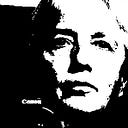Archival Adventures — Taking the Plunge!
History of Modern Homelessness Coming Together
archive noun
ar·chive ˈär-ˌkīv : a place in which public records or historical materials (such as documents) are preserved (Merriam-Webster)
Starting today, 1/7/23. I am documenting my effort to cull through more than three decades of my life’s work in homelessness. I will deliver my pile to American University in Washington DC, as part of their to-be-formed archival collection on US homelessness. Others will also contribute to this first in our nation’s history — a look at modern homelessness from the viewpoint of us dinosaurs involved since the 80s.
This collection of posts may not be of interest to most Medium readers. But for those who are curious, or who have been part of America’s best and worst treatment of adults and kids who’ve lost housing and found themselves in the vortex of houseless poverty, I think you’ll find this fascinating.
For whatever reason, as I changed jobs, I snagged a few folders of projects I was involved in, not knowing that 30-some years later I’d be faced with the challenge of sorting through to preserve a slice of esoteric history.
History of my Historical Collection
I started my social service work in 1986 at Catholic Charities in Joliet, IL. I was hired as a temp to lead the agency’s self-study in preparation for their upcoming accreditation process. At that time, this small agency found itself overrun by the explosion of poverty and homelessness in this Rust Belt city of about 70,000.
I was pulled into dealing with homelessness by my desperate director, Frank Laule. Shortly after, my path crossed with Mitch Snyder, who shaped my involvement in systemic advocacy that has balanced my approach to the bandaid side of homelessness work. (For those interested in my backstory, this will connect you to books I’ve written.)
I schlepped those relics as I moved from Joliet to running the PADS shelter at Hesed House in Aurora, IL.
Ironically, January 2023 is the 20th anniversary of my, ahem, unplanned departure from Hesed House, an ecumenical center for ministry to very poor and homeless persons.
My time at this former city incinerator was the most challenging work of my life — direct service, running an emergency overnight shelter that served upwards of 100 men, women and children each night. In my spare time, I created and implemented advocacy efforts to blunt the impact of policy pain directed at the “have-nots.”
My Aurora folders followed me to my brief, but satisfying, two years as the Illinois State Board of Education’s lead liaison in the 8 counties surrounding Chicago for the McKinney-Vento Education for Homeless Children and Youth program. My job there was to guide 305 school districts in the newly-reauthorized federal law governing how schools must serve students experiencing homelessness.
Following my 2005, ahem, unplanned departure from there, with a few folders of notable events in my possession, I’ve embarked on a venture, HEAR US Inc., that I’m still on today. (Being my own boss sure does help job security!) My modest collection of material from this stint will add to the pile.
My files have been safely stored in a basement where I’ve parked my van while in the Chicago suburban area since hitting the road in 2005 to chronicle invisible family homelessness across the non-urban US. As with all things, a confluence of unexpected circumstances require me to deal with this pile of my possessions. Fortunately, my friend and colleague Yvonne Vissing has successfully pursued a home for our homelessness materials. She’s gathering hers. I’m gathering mine.
This promises to be a fascinating journey through history. I’ll share the notables as I go along. How long will this take? I don’t know, but spending time in Illinois in January living in my van makes haste a virtue. So I’ll get on with it right now.
